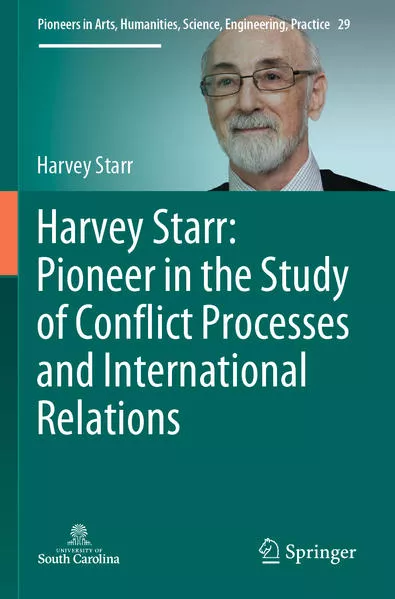
- Publikationen ca: 1
- Gefolgt von 1 Nutzern
- Fragen & Antworten
Starr, Harvey
Harvey Starr (Yale University Ph.D. 1971) is the Dag Hammarskjöld Professor in International Affairs Emeritus in the Department of Political Science at the University of South Carolina. After 25 years at South Carolina and 43 years in the discipline, he retired in June 2014. Professor Starr served as Chair of the Department at USC from 1998-2006; he previously served as Department Chair at Indiana University from 1984-1989. He has also taught at the University of Aberdeen, Scotland, and the Australian National University.
He has been president of the Peace Science Society (International), vice president of the American Political Science Association, president of the Conflict Processes Section of the APSA, as well as vice president and president of the International Studies Association. He has served as editor of International Interactions (1991–2000) and associate editor of the Journal of Politics (2001–2003).
Professor Starr specializes in international relations theory and methods, international conflict, geopolitics and spatial analyses, foreign policy analysis, and language and politics. He is the author or co-author of 19 books and monographs and almost one hundred journal articles and book chapters. He has been awarded numerous grants, including three from the National Science Foundation. In 1998, he was the recipient of the USC’s Russell Award for Research in Humanities and Social Sciences. In 2015 he received the Lifetime Achievement Award from the Conflict Processes Section of the American Political Science Association “in recognition of scholarly contributions that have fundamentally improved the study of conflict processes.”
He has been president of the Peace Science Society (International), vice president of the American Political Science Association, president of the Conflict Processes Section of the APSA, as well as vice president and president of the International Studies Association. He has served as editor of International Interactions (1991–2000) and associate editor of the Journal of Politics (2001–2003).
Professor Starr specializes in international relations theory and methods, international conflict, geopolitics and spatial analyses, foreign policy analysis, and language and politics. He is the author or co-author of 19 books and monographs and almost one hundred journal articles and book chapters. He has been awarded numerous grants, including three from the National Science Foundation. In 1998, he was the recipient of the USC’s Russell Award for Research in Humanities and Social Sciences. In 2015 he received the Lifetime Achievement Award from the Conflict Processes Section of the American Political Science Association “in recognition of scholarly contributions that have fundamentally improved the study of conflict processes.”

Harvey Starr: Pioneer in the Study of Conflict Processes and International Relations
This book sets out, through Starr’s personal story, his interest in how the ideas of “intellectual trajectories” and “political memories” could be incorporated into intellectual autobiography, thus exploring how the personal lives of individual academics intersected with their professional interests.